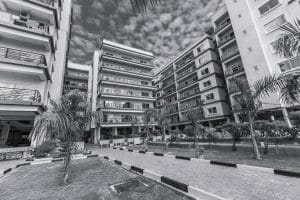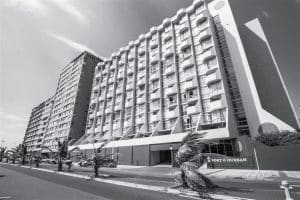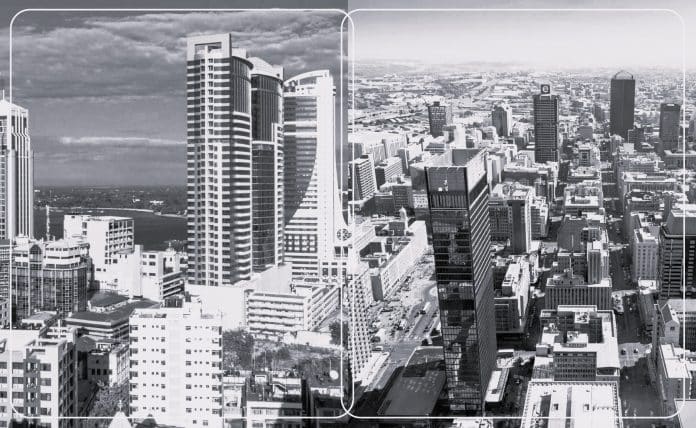Tanzania vs. South Africa: Breaking Down the Cost of Living – Which Destination is More Budget-Friendly?
Are you considering relocating to either Tanzania or South Africa? Before making any decisions, it’s essential to understand the cost of living in Tanzania compared to South Africa.
In this article, we will provide a detailed comparison of the expenses you can expect in Tanzania and South Africa, helping you determine which is the more budget-friendly choice.
Tanzania, known for its stunning wildlife and captivating landscapes, offers a unique experience for expats. But is it an affordable one? South Africa, on the other hand, stands out with its cultural diversity and vibrant cities. But does it come with a higher price tag?
By delving into various aspects such as accommodation, transportation, food, healthcare, and entertainment, we will break down the cost of living in each country. From average rental prices to the cost of a meal at a local restaurant, our analysis will provide a comprehensive comparison to help you make an informed decision.
Whether you are a digital nomad, retiree, or a young professional looking for new opportunities, understanding the cost of living in Tanzania compared to South Africa is crucial. So, let’s dive in and discover which destination offers a more budget-friendly lifestyle: Tanzania or South Africa.
Cost of Living in Tanzania

Before we delve into the cost of living in Tanzania compared to South Africa, let’s discuss the cost of living in each country to get an accurate sense of the expenses in both countries.
Tanzania is a country known for its natural beauty and rich cultural heritage. When it comes to the cost of living, Tanzania offers a more affordable lifestyle compared to many other countries. One of the major contributors to its affordability is the low cost of accommodation. Whether you choose to rent or buy a property, you can find options that fit various budgets.
In terms of rental prices, you can expect to pay an average of $500 to $1,000 per month for a one-bedroom apartment in the city center. If you prefer a larger space or a more luxurious setting, the prices may go up to $1,500 or more. In comparison, renting a similar property in South Africa’s major cities can cost you significantly more, with prices ranging from $800 to $1,500 per month for a one-bedroom apartment in the city center.
Transportation costs in Tanzania are also relatively low. The country has an extensive public transportation system, including buses and minibusses, which are affordable options for getting around. A one-way ticket on public transport can cost as little as $0.30. Taxis are also available but tend to be more expensive.
When it comes to food and groceries, Tanzania offers a range of options to fit different budgets. Eating out at local restaurants can be quite affordable, with a meal at a mid-range restaurant costing around $5 to $10. Street food is even cheaper, with prices as low as $2 for a filling meal. Grocery prices are also reasonable, with basic items such as bread, milk, and vegetables being affordable for most people.
In terms of healthcare, Tanzania has both public and private healthcare facilities. Public healthcare is generally more affordable, but the quality of care may vary. Private healthcare offers a higher standard of care but comes at a higher cost. It is advisable to have comprehensive health insurance to cover any unexpected medical expenses.
When it comes to education and childcare, Tanzania has a mix of public and private schools. Public schools are more affordable, but the quality of education may not be as high as in private schools. Private schools, on the other hand, tend to offer better facilities and a higher standard of education, but the fees can be quite expensive.
In terms of entertainment and recreation, Tanzania has a lot to offer. From national parks and wildlife reserves to beautiful beaches and historical sites, there are plenty of activities to enjoy. Many of these attractions have affordable entrance fees, making them accessible to people with various budgets.
Overall, the cost of living in Tanzania compared to South Africa offers a relatively low cost of living. The affordability of accommodation, transportation, food, and healthcare make it an attractive option for those looking for a budget-friendly destination.
Cost of Living in South Africa
South Africa is a country known for its diverse culture, stunning landscapes, and vibrant cities. When it comes to the cost of living, South Africa offers a mix of affordability and higher expenses, depending on the location and lifestyle choices.
Housing expenses in South Africa can vary significantly depending on the city and neighborhood. In major cities like Johannesburg and Cape Town, rental prices can be higher compared to smaller towns. On average, a one-bedroom apartment in the city center can cost between $800 and $1,500 per month. However, if you are willing to live in the suburbs or smaller towns, you can find more affordable options.

Transportation costs in South Africa can also vary depending on the city and mode of transportation. Public transport, including buses and trains, is relatively affordable, with fares starting at around $0.50. Taxis and ride-hailing services like Uber are also available, but the costs can add up if you rely on them frequently.
Food and grocery prices in South Africa can be higher compared to Tanzania. Eating out at a mid-range restaurant can cost you around $10 to $20 per meal. Street food options are available and can be more affordable, but it’s important to consider hygiene and safety factors. Grocery prices are also higher, with basic items costing more compared to Tanzania.
Healthcare in South Africa is a mix of public and private facilities. Public healthcare is available to all citizens and permanent residents, but the quality of care may vary. Private healthcare offers a higher standard of care but comes at a higher cost. It is recommended to have comprehensive health insurance to cover any medical expenses.
Education and childcare costs in South Africa can vary depending on the type of school and the location. Public schools are available and are more affordable, but the quality of education may not be as high as in private schools. Private schools offer a higher standard of education but come with higher fees. Childcare costs can also be significant, especially for full-time daycare or preschool.
Entertainment and recreation options in South Africa are plentiful. From national parks and game reserves to cultural festivals and vibrant nightlife, there is something for everyone. However, some activities and attractions can be quite expensive, especially in popular tourist destinations. It’s important to budget accordingly to enjoy the experiences without overspending.
In conclusion, South Africa offers a diverse and vibrant lifestyle but comes with a higher cost of living compared to Tanzania. Housing, transportation, food, and healthcare expenses can be higher in South Africa, especially in major cities. However, the country offers a wide range of opportunities and experiences that may be worth the higher costs for some individuals.
When considering a relocation to these two countries, it’s important to take into account the cost of living in Tanzania compared to South Africa. Tanzania offers a more affordable lifestyle, with lower housing, transportation, and food expenses compared to South Africa. However, South Africa offers a more diverse and vibrant lifestyle, with a range of cultural attractions and opportunities.
Ultimately, the choice between Tanzania and South Africa depends on your budget, lifestyle preferences, and career opportunities. It is advisable to research and compare the cost of living in both countries based on your individual needs before making a decision.
Click here for more articles related to Daily Life in Tanzania and Social Customs!






























